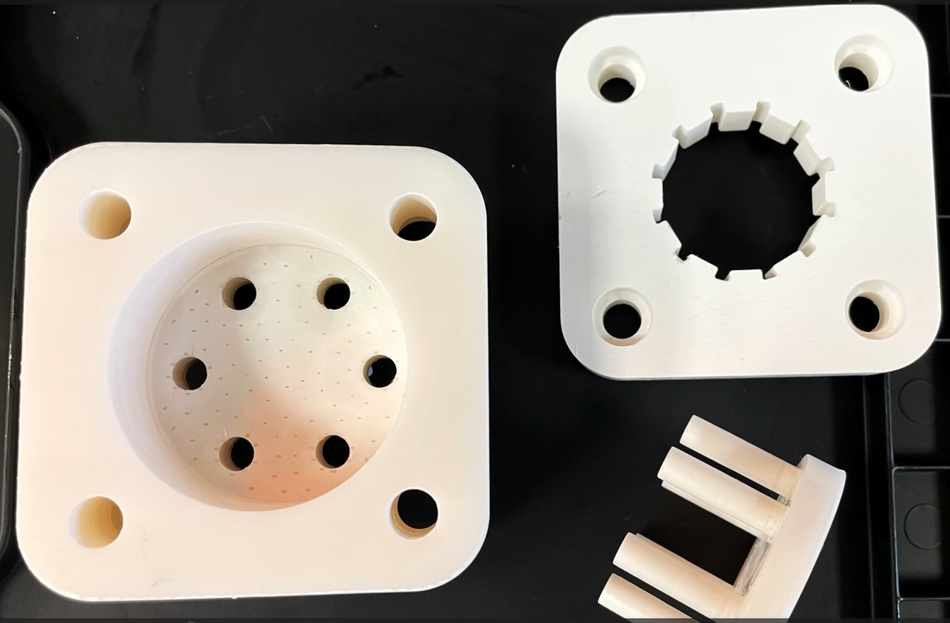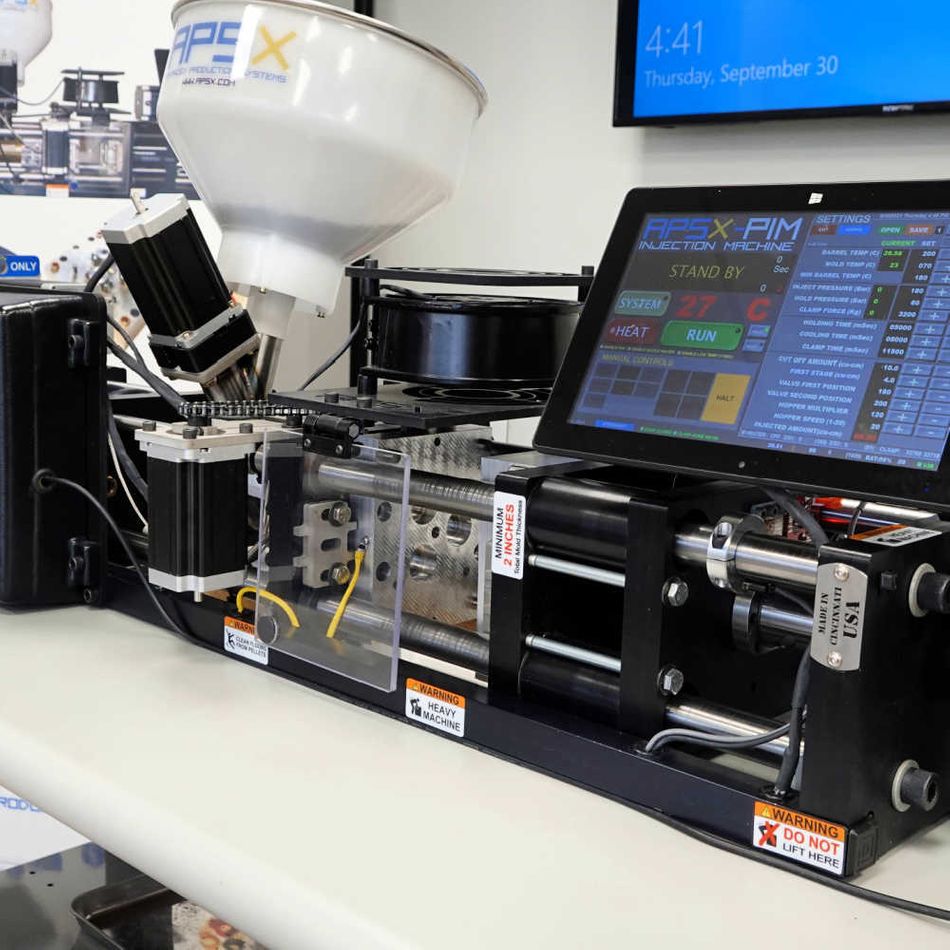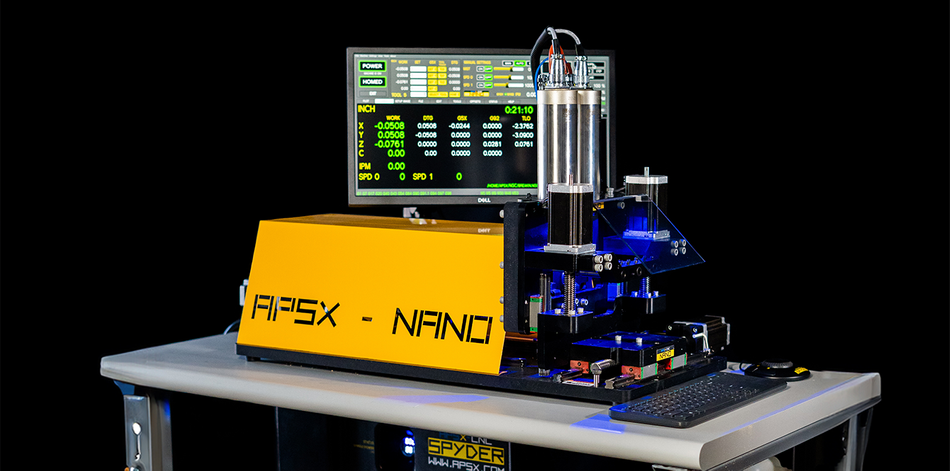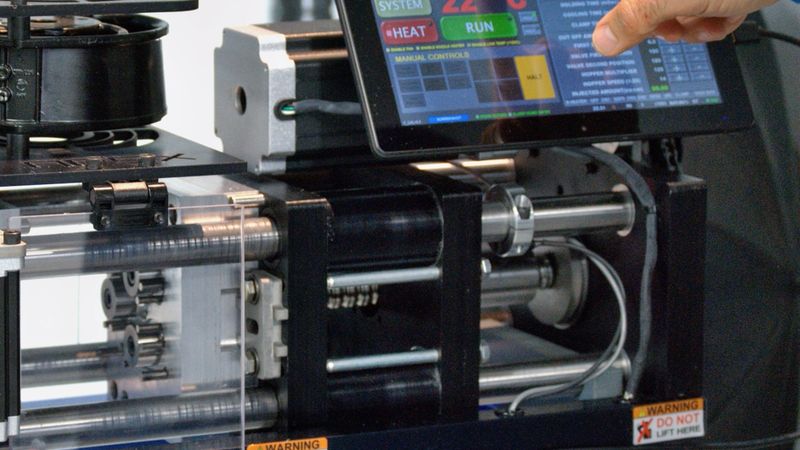Top Benefits of Leveraging APSX Machines for Industrial Optimization
APSX machines represent a significant breakthrough in modern agile manufacturing, designed to boost efficiency with easy setups, precision for injection molding over 3D printing, and scalability across diverse industrial sectors due to their low initial investment and small sizes.
From accelerating production timelines to ensuring unmatched quality control, the adoption of APSX machines can redefine operational performance for businesses of all sizes from an inventor/entrepreneur alone to global companies around the world.
1. Revolutionizing Manufacturing Efficiency with Automation
APSX machines are built with automation at their core, reducing manual intervention and optimizing every stage of production. They incorporate CNC capabilities, allowing for precise execution of complex parts and simple injection molding process for making real plastic functional parts instead of fragile 3D printed parts. This translates into shorter production cycles, lower lead times, and a dramatic reduction in product development and production costs.
By integrating APSX machinery, businesses can achieve substantial efficiency gains, minimizing downtime due to long lead times and ensuring continuous production. These systems also enable manufacturers to schedule operations 24/7, maximizing output and enhancing the overall production capacity without compromising quality.
2. Scalable Solutions Tailored for SMEs
For small and medium enterprises (SMEs), balancing capital investment with production output is critical. APSX machines provide a cost-efficient solution, featuring modular designs that scale with business growth. Unlike traditional machinery, APSX systems have a low total cost of ownership (TCO), owing to their energy-efficient operations, minimal maintenance requirements, and a reduced need for expensive tooling.
This scalability ensures that SMEs can start with a smaller setup and expand their manufacturing capabilities as demand increases, without the need for a complete overhaul of their production infrastructure. The flexibility and affordability of APSX solutions make them ideal for companies looking to innovate while maintaining profitability.
3. Enhanced Versatility Across Multiple Sectors
One of the standout features of APSX machinery is its adaptability to various manufacturing needs. From automotive components to medical device production, these machines are engineered to handle a broad spectrum of materials, including metals, plastics, and composites. This versatility is supported by advanced programming options and customizable mold designs that allow for seamless transitions between different product specifications.
For industries requiring precision and consistency—such as aerospace and electronics manufacturing—APSX machines provide unparalleled control over complex geometries and intricate detailing, ensuring that each output meets stringent industry standards.
4. Accelerated Prototyping for Rapid Product Development
In today’s competitive market, speed-to-market is a critical success factor. APSX machines empower businesses to rapidly prototype new designs using subtractive and additive manufacturing techniques. By leveraging CNC milling or 3D printing capabilities, companies can iterate quickly on product designs, making necessary adjustments in a fraction of the time required by traditional methods.

This rapid prototyping capability reduces the time between concept and market-ready product, enabling manufacturers to respond swiftly to consumer feedback and changing market trends. Moreover, the ability to produce functional prototypes allows for comprehensive testing, ensuring that final products meet all performance and reliability criteria before mass production.

5. Precision Engineering for Superior Product Quality
Precision and repeatability are the hallmarks of APSX machinery. Using state-of-the-art software and premium components, these machines deliver exceptional accuracy, maintaining tight dimensional control even in high-volume production runs. This capability is essential for industries where product uniformity and reliability are non-negotiable, such as medical device manufacturing and precision engineering.
APSX machines utilize closed-loop feedback systems, ensuring real-time adjustments that prevent deviations and guarantee that each part produced is identical to the next. This high degree of precision reduces the incidence of defective products, enhances quality assurance, and minimizes material waste, ultimately leading to improved profitability and sustainability.

6. Sustainability Through Resource Efficiency
Environmental responsibility is becoming a priority for manufacturers worldwide. APSX machines contribute to sustainability by incorporating energy-efficient drives and low-waste manufacturing techniques. With programmable precision, these machines optimize material usage, minimizing scrap rates and reducing the overall carbon footprint of the production process.
In addition, the adoption of APSX technology aligns with green manufacturing practices by supporting the use of recyclable materials and facilitating the remanufacturing of worn components, extending the lifecycle of products and reducing industrial waste.
#injectionmolding #cncmachining #prototyping #sustainability
